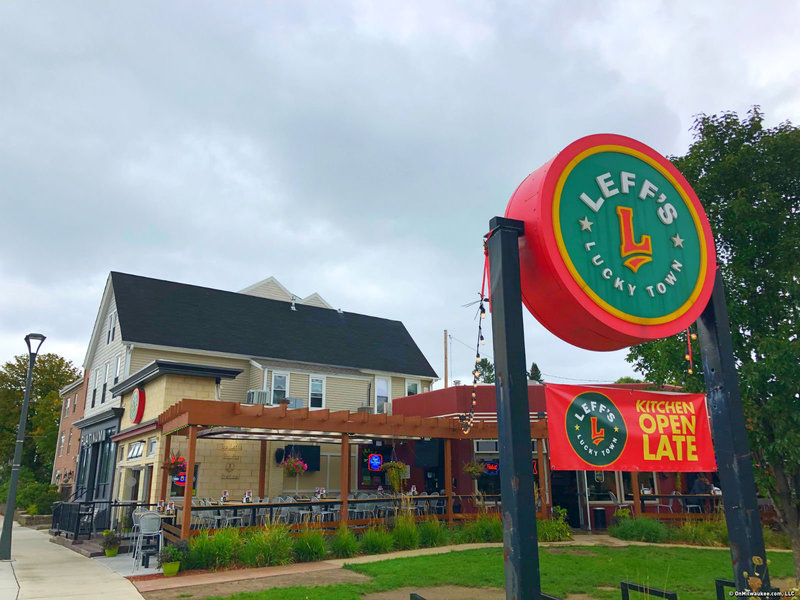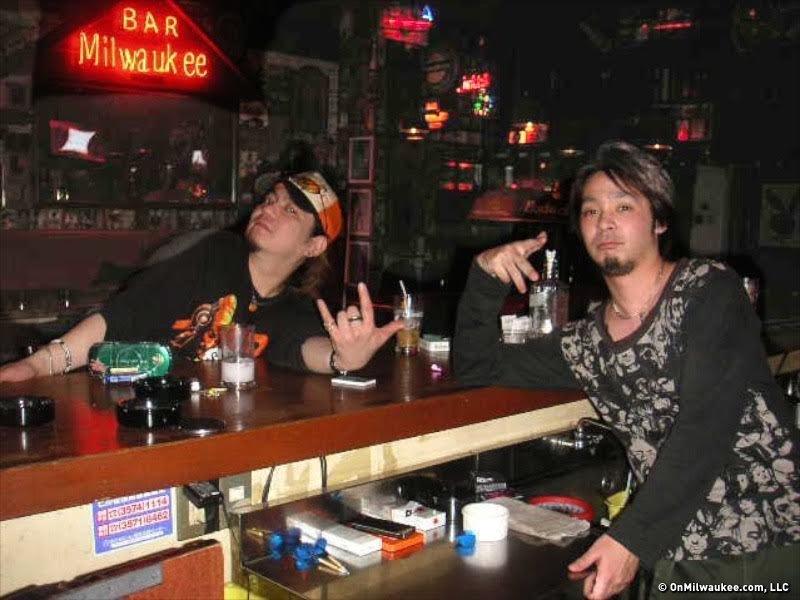"Bar Month" at OnMilwaukee.com is back for another round! The whole month of February, we're serving up intoxicatingly fun bars and club articles -- including guides, unique features, drink recipes and more. Grab a designated driver and dive in!
From the larger venues on Water Street to the tiny spots on residential corners, bars and taverns are an integral -- some might even go as far as to say indispensable -- part of Milwaukee's cultural identity.
Many of the establishments serve their customers and community without incident, adding to social flavor of a neighborhood by sponsoring teams and activities and contributing to charitable causes.
But, the picture is not always positive.
At different times and in different neighborhoods, taverns can become what the city refers to as "problem taverns." What constitutes a "problem tavern?" One that draws complaints for things like excessive noise, overcrowding, underage drinking, littering, public urination, stolen cars, vandalism, drug activity, gun shots, fights and assorted violence.
Those are some of the things Milwaukee Police officer Steve Stelter looks for when he works his beat, which includes the Water Street bar district.
"There are always issues with overcrowding," Stelter said. "Underage drinking is a concern, too, as well as people lingering in the bars after closing time. Most of the bars do a pretty good job of getting people out, but we like to make sure people get out of there in a timely and orderly fashion."
Asked if some bars get a reputation as "problem spots," Stelter avoided using the label.
"I don't want to say that certain bars get bad reputations, but we do frequent some establishments ore than others," he said.
Some days lead to more incidents, too. Crowded summer nights during festival season. Busy, drinking-heavy holidays like St. Patrick's Day, Halloween and New Year's Eve and -- believe it or not -- full moons.
"Ever since I became a cop, I believe in the full moon," Stelter said. "Weird things happen when there is a full moon, and you can't explain it. I believe."
Although there is a "buyer beware" element for people who live near taverns -- and many use the "if you don't want planes to fly overhead, don't buy a home near the airport' argument -- people who live or work near taverns shouldn't have to abandon their rights. The City of Milwaukee has printed an informational brochure about dealing with problem taverns. It begins with a pair of disclaimers:
"First, the Common Council doesn't have absolute authority over alcohol beverage establishments. The Wisconsin State Legislature has declared that the regulation of these establishments is a matter of "statewide concern." This means there are limits to what the City may or may not do as it attempts to regulate them. It is also because of this that there are sometimes elaborate procedures for not renewing, suspending or revoking an alcohol beverage license.
"Second, once a license to operate an alcohol beverage establishment is granted, that license is considered property, much like a house or a car. This means that the Common Council can't take the license away without providing the licensee due process of law."
The city recommends five steps for residents encountering problems with licensed establishments. In summary, they include:
Talking directly to the owner or operator. Most owners want to be good neighbors and will be responsive.
Contact the police and keep a record of when you called and what about.
Contact your alderman.
File a formal complaint, which must be in writing and often notarized.
Attend a license hearing. Roughly once every three weeks, meetings are held at City Hall. A physical presence at the meetings is imperative, because sworn testimony will be read into the record.
The process for license suspension or revocation is neither simple nor swift.
"It's pretty hard to lose a license once you have it," said one Milwaukee bar owner, who spoke to OnMilwaukee.com on the condition of anonymity. "I used to watch the hearings on cable. That was always pretty funny."
Though minor complaints often are handled quietly, several license issues received publicity recently including Chaser's in Bay View (drug issues), The Ladybug Club located Downtown (violence and loitering) and Rain, a teen-oriented club at 906 S. Barclay St. that encountered problems with fighting.
On balance, most insiders at City Hall and the police department feel that tavern owners do a good job of limiting headaches for neighbors.
"A lot of it is common sense," said Peter Jest, who has operated Shank Hall, a music club located at 1434 N. Farwell Ave., for the past 20 years. "You have to let neighbors know who you are and what you are about."
Jest said the main thing that has helped him avoid problems is his "no passout" policy, which prohibits customers from leaving his building and returning.
"In 1989, we had so may neighbors object to us getting a license that we decided not to allow passouts," he said. "When you think about it, there really is no reason for people to leave a show. If they do, they may urinate in the street or go and drink in their car and leave beer cans and bottles on the sidewalk. It really leads to no good.
"Our staff will go out and pick up trash around the area, even if it didn't come from our club. There is always that perception -- if there is a beer bottle in the street, it must have come from the club.
"We'll go out and pick things up and we try to be respectful of our neighborhood in terms of closing time. You just have to use common sense and be respectful."
Host of “The Drew Olson Show,” which airs 1-3 p.m. weekdays on The Big 902. Sidekick on “The Mike Heller Show,” airing weekdays on The Big 920 and a statewide network including stations in Madison, Appleton and Wausau. Co-author of Bill Schroeder’s “If These Walls Could Talk: Milwaukee Brewers” on Triumph Books. Co-host of “Big 12 Sports Saturday,” which airs Saturdays during football season on WISN-12. Former senior editor at OnMilwaukee.com. Former reporter at the Milwaukee Journal Sentinel.






.jpeg)
